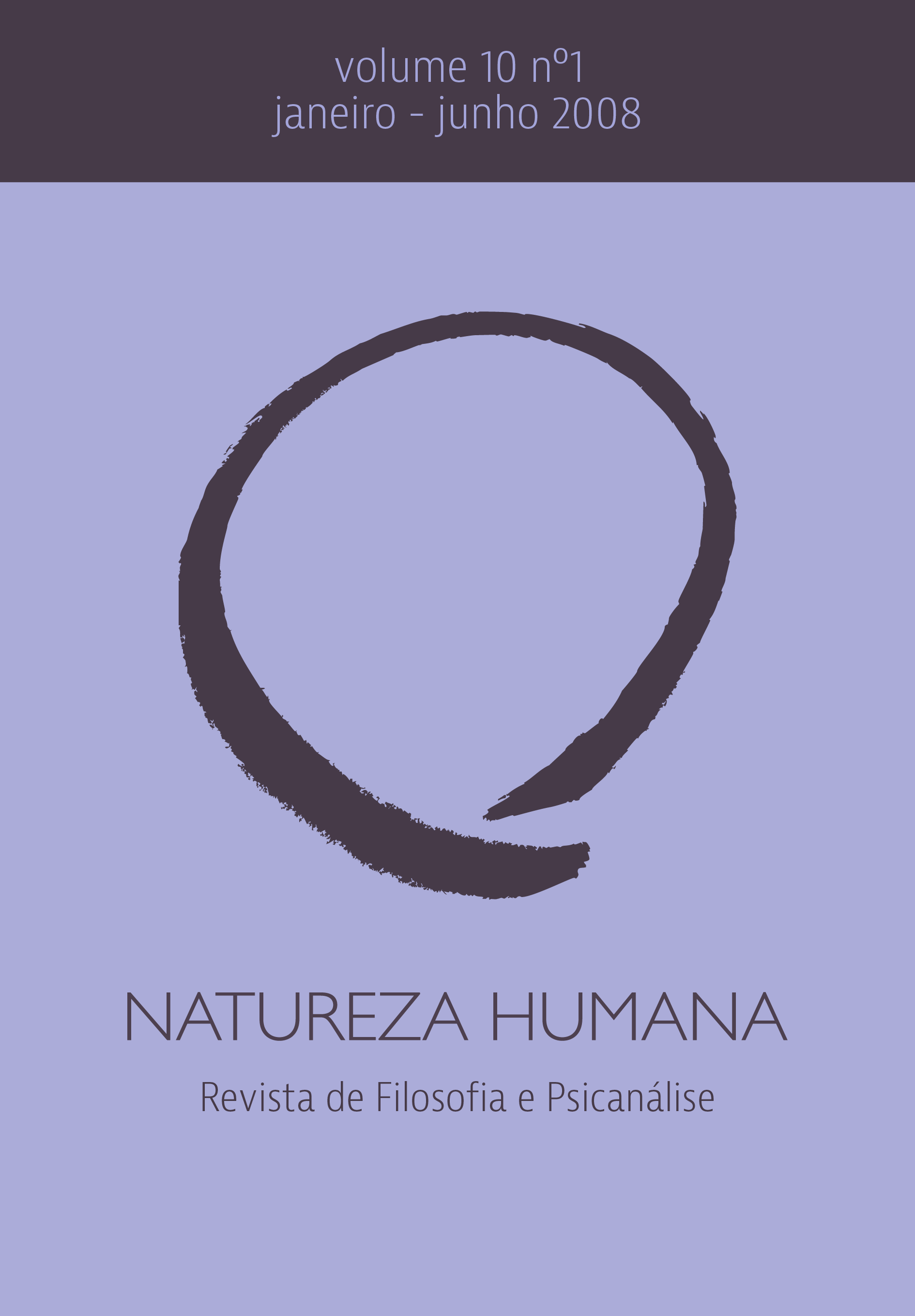Winnicott’s theory of maturation as a guide for clinical pratice
DOI:
https://doi.org/10.59539/2175-2834-v10n1-921Keywords:
Winnicott; maturation; diagnosis; classification; paranoia.Abstract
Based on Winnicott’s conception according to which the nature of the psychic disorder is connected with its origin - within the maturation process - this study aims to show that the theory of the personal maturation can be used as a theoretical horizon for clinical diagnosis purposes and as a guide for clinical work. At first, fundamental presuppositions upon which the theory is based as well as its main characteristics are provided here. Secondly, we present briefly the simplest classification normally used by Winnicott which includes psychoses, depressions and neuroses. At last, by way of example, we show that one same disorder in terms of symptoms, in this case paranoia, can have different natures, according to the moment of the maturation process when the environmental failure made the difficulty emerge in the individual’s life.Downloads
Published
2024-10-02 — Updated on 2008-10-02
How to Cite
Dias, E. (2008). Winnicott’s theory of maturation as a guide for clinical pratice. Human Nature - International Philosophy and Psychology Review, 10(1), 29–46. https://doi.org/10.59539/2175-2834-v10n1-921
Issue
Section
Artigos








